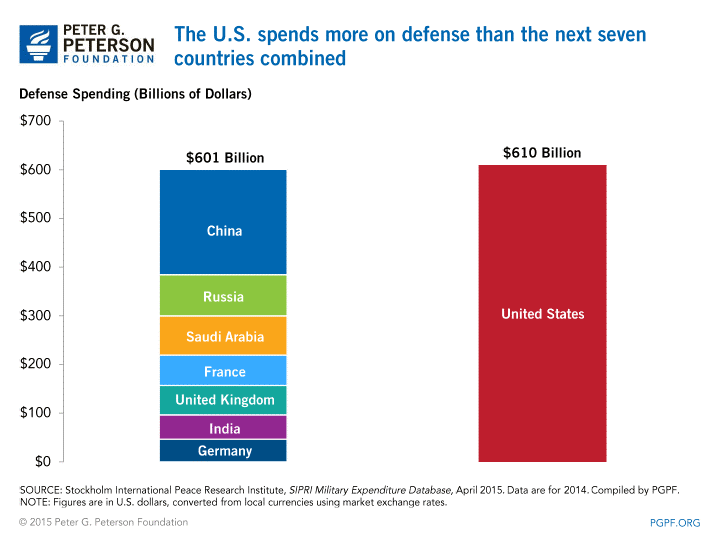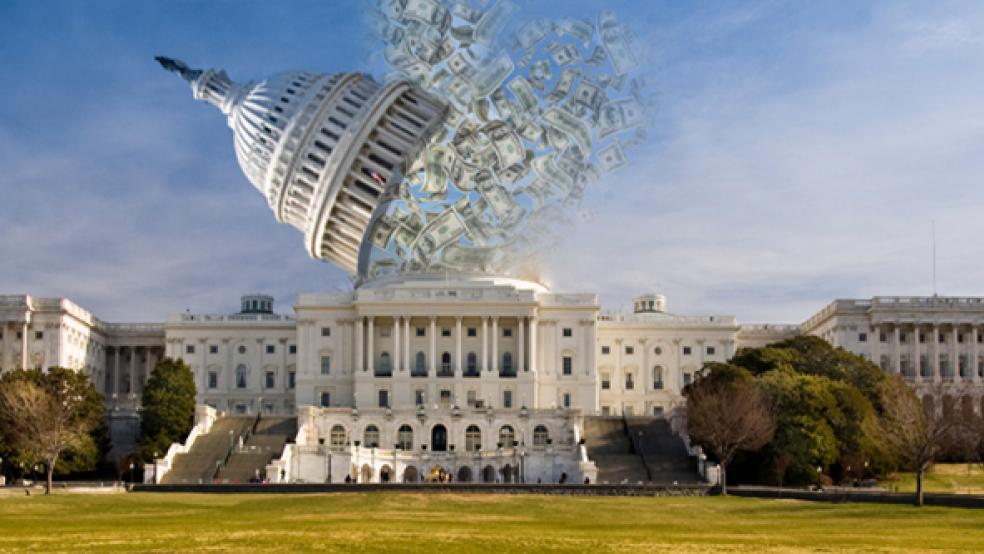After the breakneck approval of a budget deal that boosts federal spending over the next two years, the Republican-controlled Congress this week will try to sort out the fate of the $612 billion National Defense Authorization Act (NDAA) for fiscal 2016.
President Obama vetoed the same measure on October 22 because at that time, as a stand-alone measure, it gave Defense a back door to avoid the automatic budget cuts imposed on both military and domestic spending. That back door was an additional $38 billion into the Pentagon’s Overseas Contingency Operations (OCO) fund, commonly known as the war fund.
Related: Pentagon Cooks the Books to Hide Massive Waste
The NDAA sets spending levels for all Defense Department programs, including troop pay, and serves as a policy roadmap for the agency. Obama’s veto, only the fifth of his presidency, was a move to keep the pressure on for a budget deal to raise spending for defense and nondefense.
The high-stakes gambit seems to have paid off last week when Congress approved a budget agreement that increased federal spending by $112 billion, with $50 billion in fiscal 2016, $30 billion in 2017, and about $32 billion for the OCO account split evenly between the defense and domestic programs.
The spending level for defense in 2016 is $5 billion less than the president’s original budget request.

The question now becomes what to do with the NDAA, a bill Congress has passed for 53 straight years. The House is slated to vote on Thursday to override Obama’s veto, but lawmakers are also preparing a new policy blueprint, minus the $5 billion.
Related: Here's How GOP Hardliners Could Still Blow Up the Budget Deal
Speaking at a Defense One summit on Monday, House Armed Services Committee chair Mac Thornberry (R-TX) said lawmakers are “going to be ready for both options.”
He said he was working with appropriators and the Senate to determine where the $5 billion cut would come from, noting dollars could from making “adjustments” to accounts like DOD’s fuel account, as oil prices continue to be lower than expected.
Which approach lawmakers ultimately take is “really going to be a leadership call,” Thornberry told reporters after the event. He said he hoped to finalize a new draft of the NDAA some time Monday and lawmakers are looking at all Pentagon programs to determine where they can do “the least damage.”
“There’s gonna be pain. There’s gonna be pain,” according to Thornberry. “There’s not a bunch of fat here that you can just take an inch and cut off the top and avoid getting into the meat. You get into the meat,” he later added.
He ruled out the idea of spreading the cuts evenly throughout DOD, calling that “a really bad way to make decisions.”
Related: With $8.5 Trillion Unaccounted for, Why Should Congress Increase the Defense Budget?
Thornberry noted that big-ticket items, like the multi-billion dollar F-35 Joint Strike Fighter program, could take a hit but declined to name specific programs that could be cut.
Regardless of their complaints, the Pentagon has a problem justifying budget increases when they can’t account for how $8.5 trillion has been spent since 1996. The reason—they’ve never passed an audit. With convoluted accounting practices that would send private sector CFOs to jail for fraud, the military has been accused of “cooking the books” when it comes to justifying its expenses.
Moving forward with an override vote could be risky for the GOP, as Democrats could sustain the president’s veto. Thornberry said he thinks Republicans are “in the ballpark” of having the votes to defeat the veto. But if the vote came up short, it could trip up new House Speaker Paul Ryan (R-WI) before he’s even settled into his new Capitol Hill office.
Taking up a fresh bill brings up other challenges, according to Thornberry, as Senate lawmakers could try to open it up for amendment, subjecting the legislation to more partisan bickering.
For Thornberry, the path forward is cloudy because Obama has “shown himself able and willing to play political games” with the NDAA and that’s Part of what leadership needs to sort through.”





